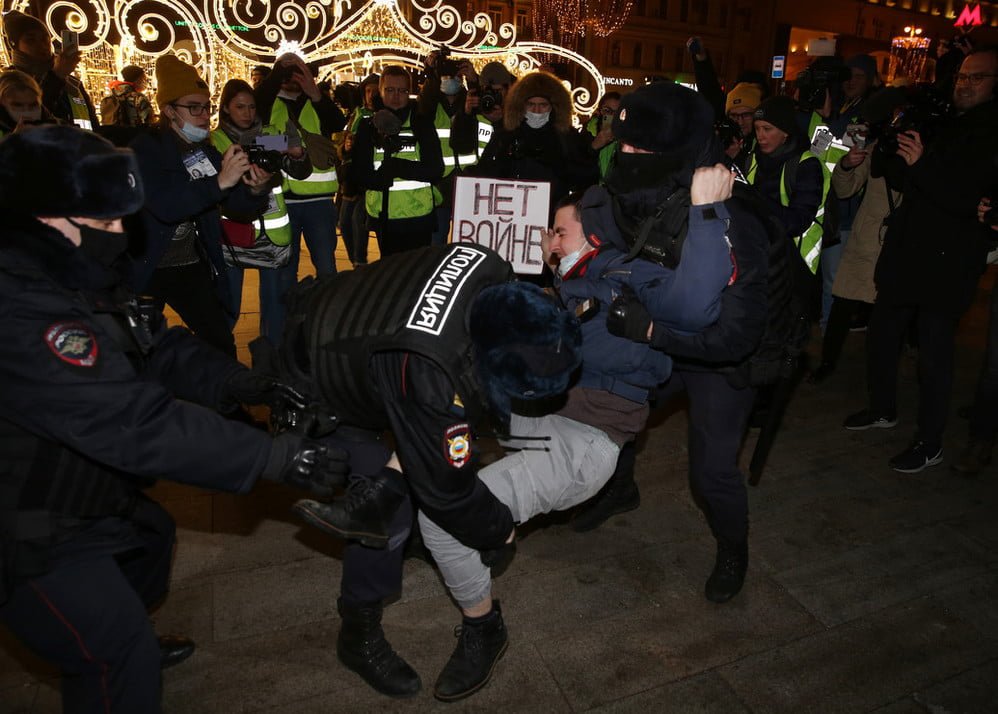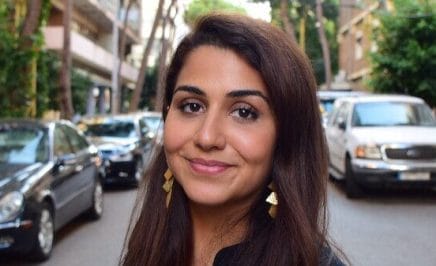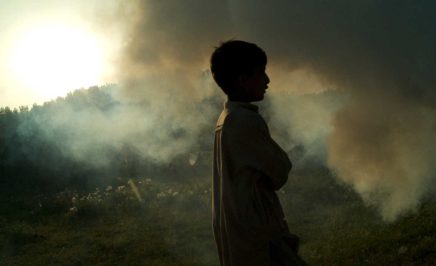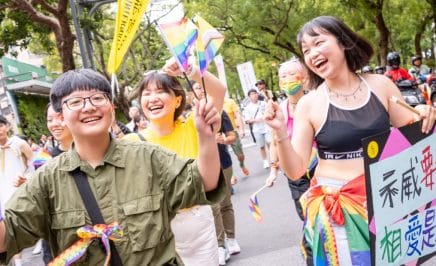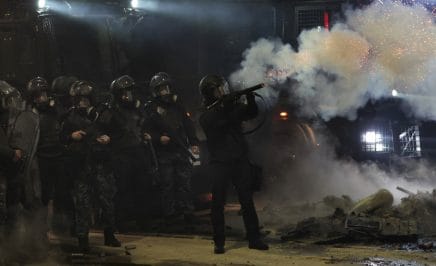Responding to the news that the Kremlin has censored domestic media as it disperses anti-war protests and persecutes those who publicly oppose Russia’s invasion of Ukraine, Marie Struthers, Amnesty International’s Eastern Europe and Central Asia Director, said:
“As thousands of protesters take to the streets across Russia to denounce the war, the Kremlin remains hellbent on stifling state critics as it coerces domestic media into supporting its policies. By using force to disperse anti-war rallies and censoring the press, the Russian authorities are plunging deeper and deeper into repression as public sentiment against the war grows.”
“Amid its desperation to silence dissent, Russia is also using state-controlled companies to muzzle those who speak out against the conflict. The removal of television presenter Ivan Urgant and the sidelining of respected journalist Elena Chernenko, who was excluded from a government press pool for composing an anti-war letter, speaks to the state’s sheer disregard for press freedom.
“As Russia engages in indiscriminate attacks in violation of international humanitarian law as part of its invasion of Ukraine, the authorities are trampling on the rights to freedom of expression and peaceful assembly in Russia while promoting its narrative of the conflict. The authorities’ brutal crackdown on those who express their dissent regarding the war must stop now.”
Background
On 24 February 2021, Russian media watchdog Roskomnadzor ordered all media to only use information provided by official state sources while covering Russia’s invasion of Ukraine. Anyone caught disobeying this order could see their websites blocked and be fined up to $62,600. On 28 February, the watchdog blocked the site of Nastoyashchee Vremya (Current Times), a RFE/RL subsidiary, for spreading “unreliable publicly important information” about the conflict.
On 27 February, the Prosecutor General’s office issued statement threatening prosecution under “high treason” charges for any type of “assistance to a foreign state, international or foreign organization or their representatives in activities directed against the security of the Russian Federation.”
Over the first four days of invasion, Russian police routinely used force to disperse nationwide anti-war protests. According to human rights NGO OVD-Info, over 5,900 peaceful protesters have been arrested in at least 67 cities and towns across Russia. On 24 February, political philosopher Grigory Yudin was beaten unconscious by the police and briefly hospitalized.
